Abstract
In a pilot neonatal screening programme for Duchenne muscular dystrophy (DMD) conducted in the Canadian province of Manitoba, a cohort of eight affected males was identified between 1 January 1986 and 31 December 1989. Demographic information, knowledge of DMD, reproductive outcome, and attitudes to prenatal diagnosis and neonatal screening for DMD were obtained through questionnaires distributed in May 1992 to the eight sets of parents of index cases, two high probability carrier aunts, and one high probability carrier sister. Personal interviews were subsequently conducted in the summer of 1992. Although there is overall consensus among the families in favour of routine neonatal screening for DMD, five of seven subsequent pregnancies reported in six women were not monitored by prenatal diagnosis and have resulted in the birth of two affected boys. In a comparable time interval, prenatal diagnosis was acceptable to carrier females whose affected male relatives were traditionally diagnosed at four or five years. We conclude that, although molecular genetic analysis now allows for precise diagnosis of DMD, highly accurate carrier testing and prenatal diagnosis, very early DMD carrier identification, and genetic counselling after the identification of DMD males in a population based neonatal screening programme may not be an effective way of decreasing the number of repeat cases of DMD within families or the overall population frequency of DMD.
Full text
PDF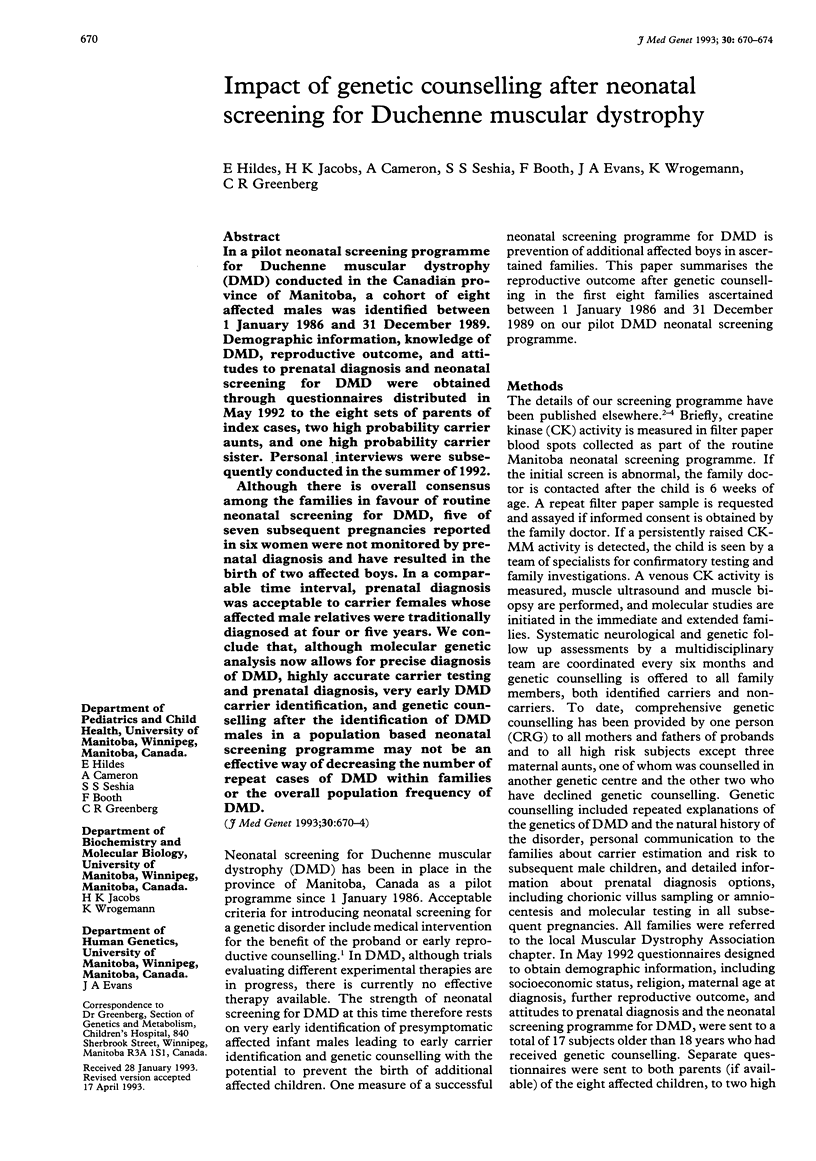
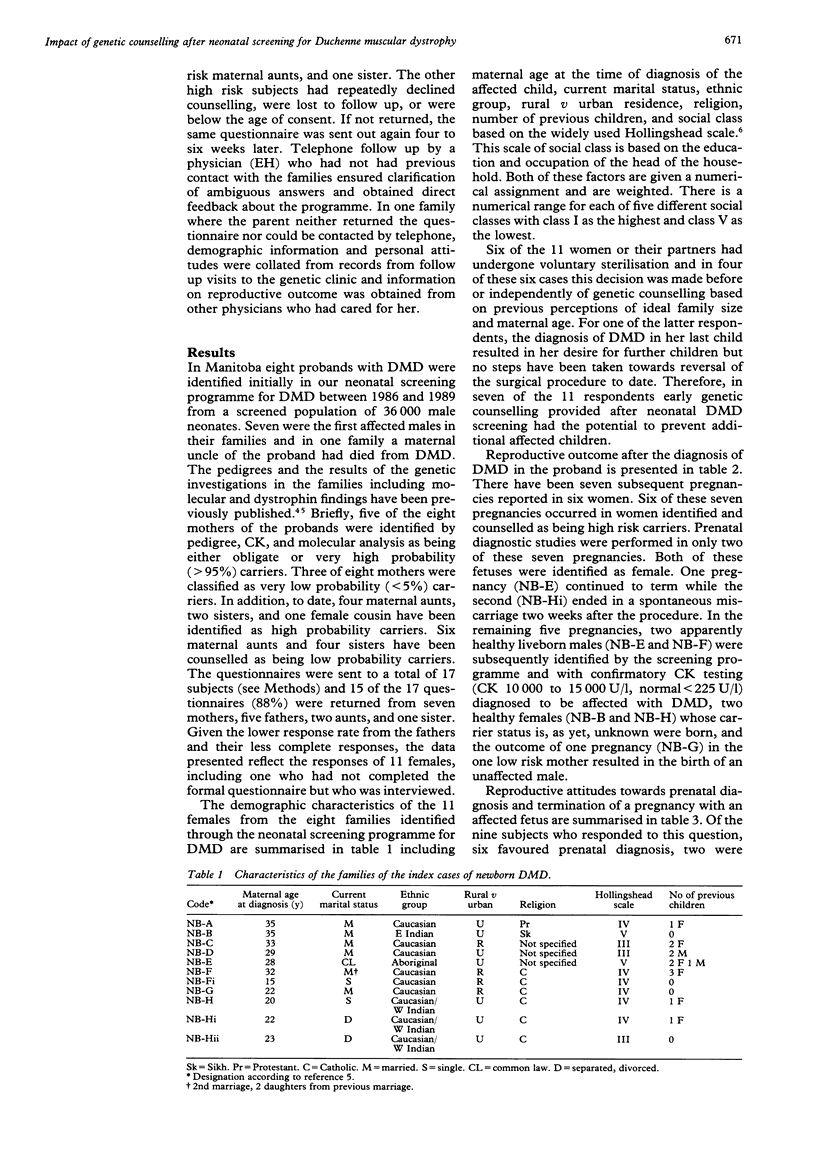
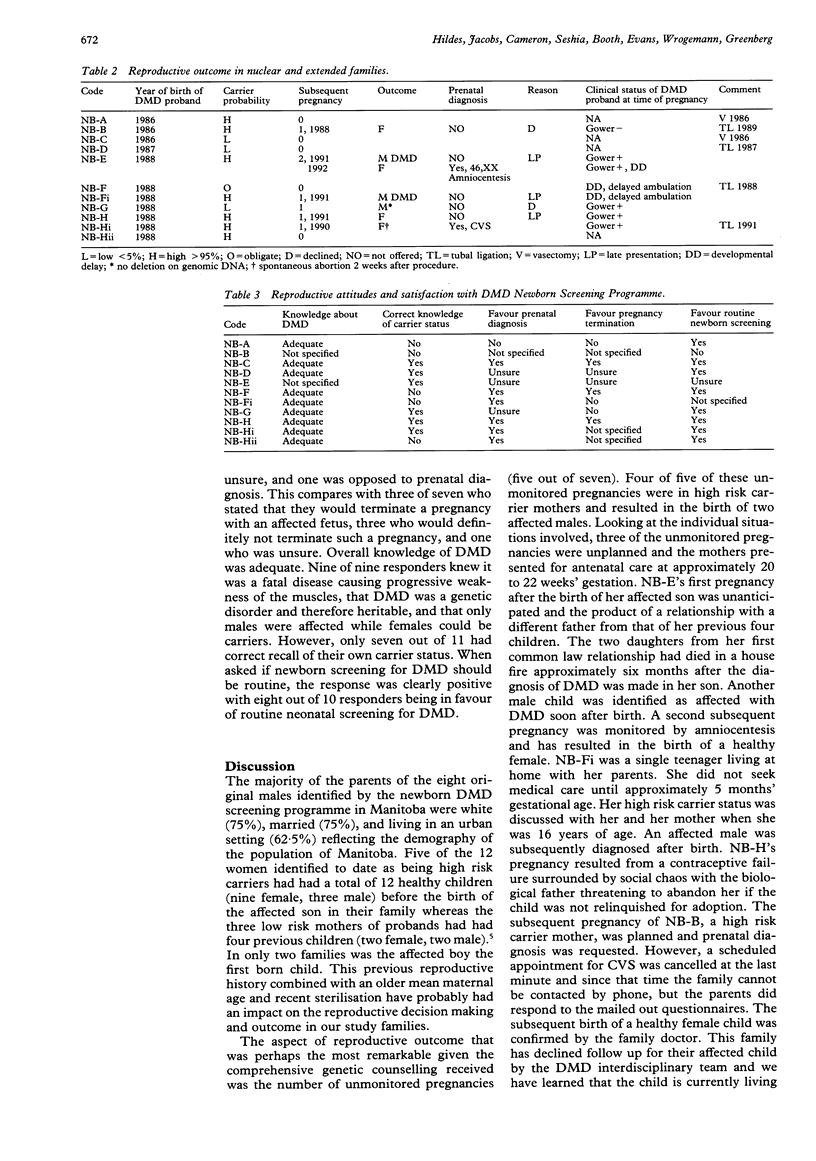
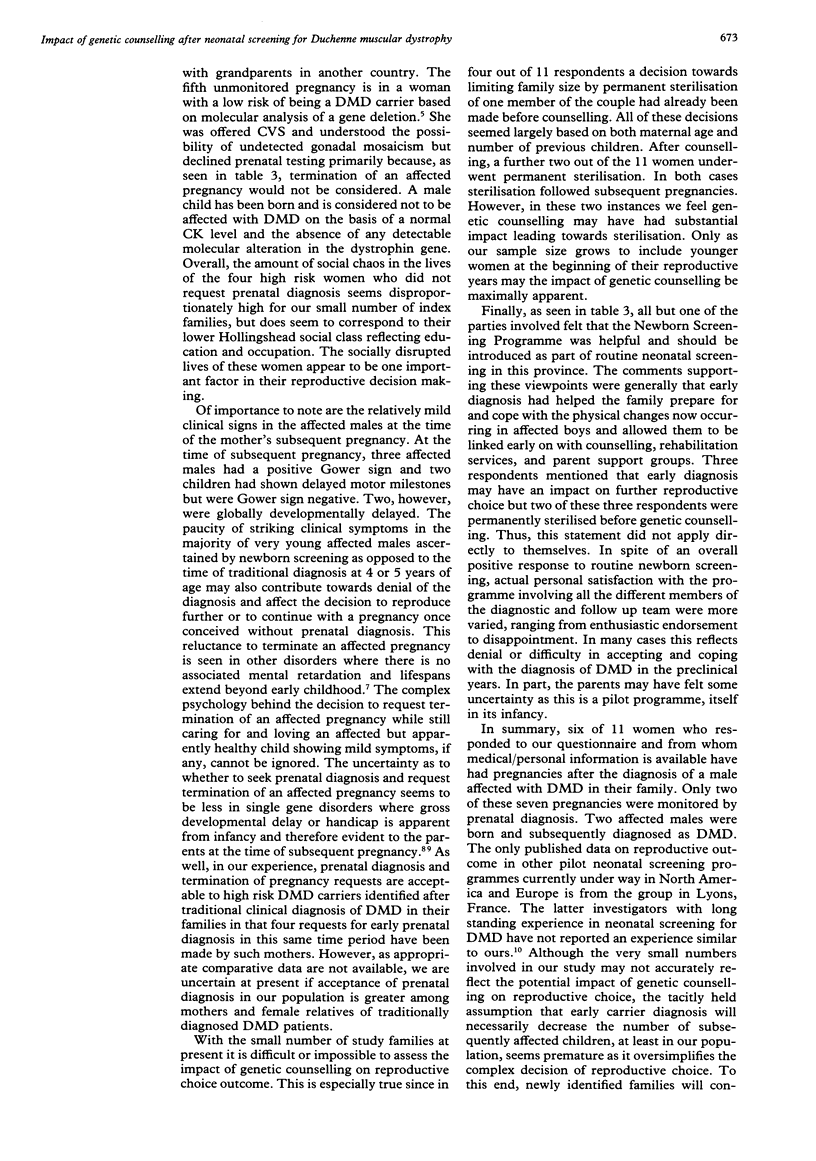
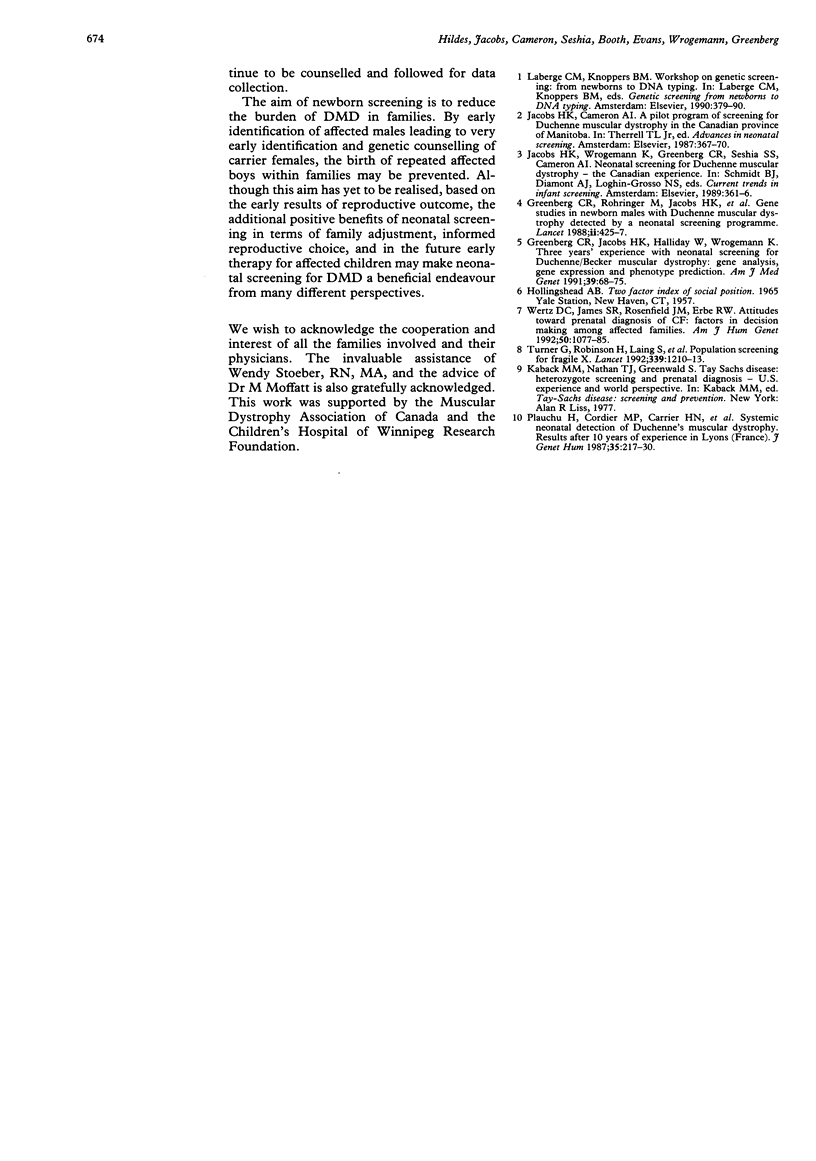
Selected References
These references are in PubMed. This may not be the complete list of references from this article.
- Greenberg C. R., Jacobs H. K., Halliday W., Wrogemann K. Three years' experience with neonatal screening for Duchenne/Becker muscular dystrophy: gene analysis, gene expression, and phenotype prediction. Am J Med Genet. 1991 Apr 1;39(1):68–75. doi: 10.1002/ajmg.1320390115. [DOI] [PubMed] [Google Scholar]
- Greenberg C. R., Rohringer M., Jacobs H. K., Averill N., Nylen E., van Ommen G. J., Wrogemann K. Gene studies in newborn males with Duchenne muscular dystrophy detected by neonatal screening. Lancet. 1988 Aug 20;2(8608):425–427. doi: 10.1016/s0140-6736(88)90414-x. [DOI] [PubMed] [Google Scholar]
- Plauchu H., Cordier M. P., Carrier H. N., Dellamonica C., Dorche C., Guibaud P., Lauras B., Cotte J., Robert J. M. Dépistage néonatal systématique de la dystrophie musculaire de Duchenne. Bilan après dix ans d'expérience dans la région de Lyon (France). J Genet Hum. 1987 Aug;35(4):217–230. [PubMed] [Google Scholar]
- Turner G., Robinson H., Laing S., van den Berk M., Colley A., Goddard A., Sherman S., Partington M. Population screening for fragile X. Lancet. 1992 May 16;339(8803):1210–1213. doi: 10.1016/0140-6736(92)91142-u. [DOI] [PubMed] [Google Scholar]
- Wertz D. C., Janes S. R., Rosenfield J. M., Erbe R. W. Attitudes toward the prenatal diagnosis of cystic fibrosis: factors in decision making among affected families. Am J Hum Genet. 1992 May;50(5):1077–1085. [PMC free article] [PubMed] [Google Scholar]


